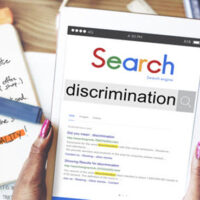Have I been misclassified by my employer, and how does it affect me?

Given the massive changes to the global economy in the wake of the COVID-19 pandemic, employers have had to think on their feet and adapt quickly to the changing world. Adjustments like working at home, granting more employee autonomy, and the like have become part of the business world. However, an employer will sometimes try to cut corners and save money by classifying employees under other statuses, in order to avoid paying out costs like overtime and health benefits. If this happens to you, be aware that this is illegal and you can file a complaint against them to get what you are owed.
Two Types
When an employer willfully classifies an employee under the incorrect status, their intent is to save money on overtime pay, as well as potential future expenses like workers’ compensation insurance premiums, tax withholding and Social Security. However, this directly deprives employees of the benefits that they are entitled by law to receive. There are two different ways that an employee may be wrongly classified: the most common is as an independent contractor, but being classified as a white-collar ‘exempt’ worker can also cause problems.
Both the federal government and the state of New York have white-collar exemptions, which establish certain standards, such as a salary test, for a benchmark that excepts certain administrative professionals and executives from overtime requirements and minimum wage. It is considered misclassification if your employer applies the wrong standards to your case. For example, if you are ruled to be ‘exempt’ because you make too much by New York State standards, you may not actually be exempt under federal rules.
Intentional or Unintentional?
Sometimes, employers do make mistakes, and may unintentionally classify an employee as a white-collar “exempt” worker, if they apply the wrong standards to a particular person. For example, a New York City administrative professional may make enough to be exempt in Nassau County, but not in New York City proper; if they are still classified as exempt, their employer will face penalties from the New York Department of Labor, as well as possibly being required to compensate you and reinstate your benefits. This is true even if the classification was unintentional; the stakes are considered too high to be very lenient.
If you believe that you have been misclassified, and as a consequence, are not receiving the benefits you might be entitled to, you should report the possible fraud to the relevant agency (generally, either the federal Department of Labor, or the New York State or New York City authorities), depending on your specific situation. However, speaking to an attorney is also crucial, because trying to handle the technical aspects of a misclassification case on your own may result in you losing opportunities or benefits.
Call A New York City-Based Employment Discrimination Attorney
Being misclassified is a serious event that can lead to you losing out on the benefits you are lawfully entitled to have. You have the right to speak up and hold your employer accountable, especially if you believe their actions were intentional. A New York City employment discrimination lawyer from Mansell Law, LLC can help you get through the complex legal process. Contact our offices today using our web form, or call us at 646-921-8900, to set up a free consultation.
Resources:
labor.ny.gov/legal/counsel/pdf/administrative-employee-overtime-exemption-frequently-asked-questions.pdf
labor.ny.gov/ui/employerinfo/employer-misclassification-of-workers.shtm
